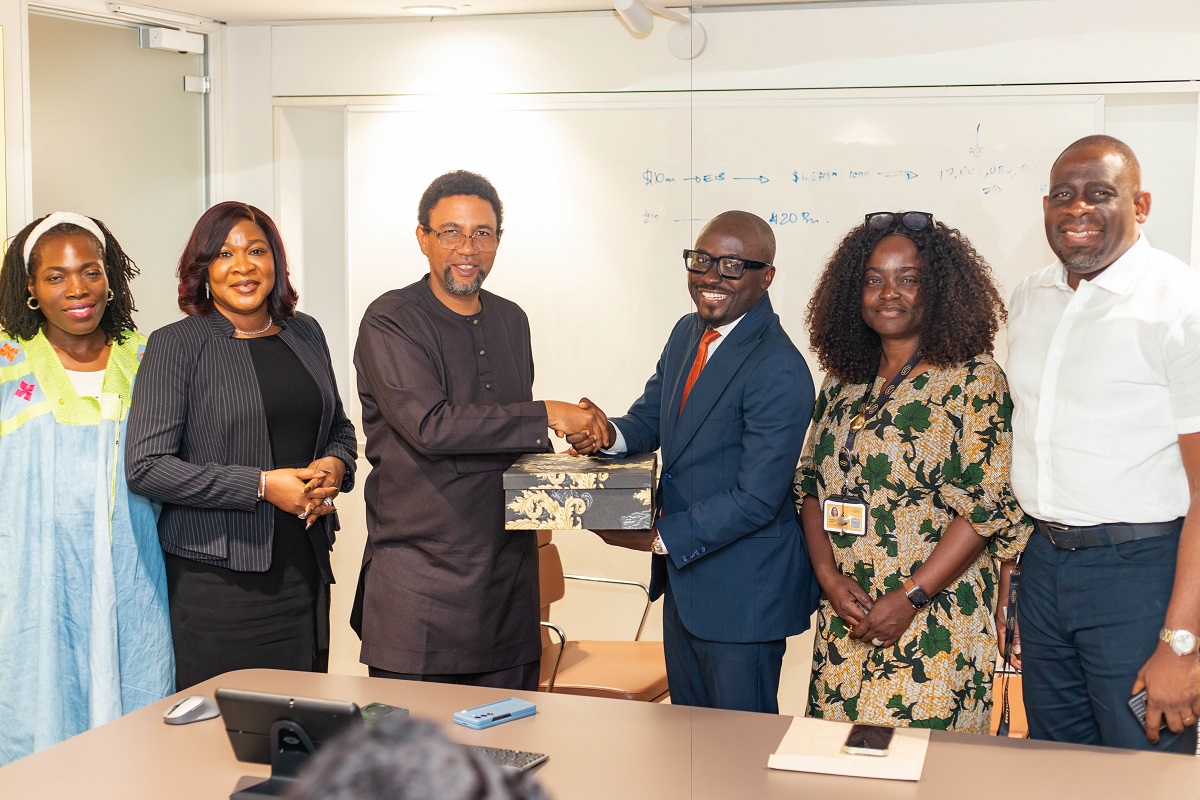Telecom
Ericsson Mobility Report Shows 5G to Top 1Bn Subscriptions in 2021

North America is forecast to lead the world in 5G subscription penetration in the next five years with nine-of-every-ten subscriptions in the region expected to be 5G by 2027.

The forecast is contained in the latest edition of the Ericsson Mobility Report, which also predicts that current global 5G subscriptions will pass the one billion milestone by the end of 2022.
The 2027-timeline also includes projections that 5G will account for: 82 percent of subscriptions in Western Europe; 80 percent in the Gulf Cooperation Council region; and 74 percent in North East Asia.
In India, where 5G deployments have yet to begin, 5G is expected to account for nearly 40 percent of all subscriptions by 2027. In global terms, 5G is forecast to account for almost half of all subscriptions by 2027, topping 4.4 billion subscriptions.
The latest Ericsson Mobility Report – the twenty-second edition of Ericsson’s network traffic insights and forecasts – also reveals that global mobile network data traffic doubled in the past two years.
This traffic growth was driven by increased smartphone and mobile broadband usage, as well as the digitalization of society and industries. The recent statistics and forecasts highlight the strong demand data connectivity and digital services have, and are expected to have, despite the global Covid-19 pandemic and geopolitical uncertainties.
Several hundred million people are becoming new mobile broadband subscribers every year.
The June 2022 Ericsson Mobility Report also verifies that 5G is scaling faster than all previous mobile technology generations. About a quarter of the world’s population currently has access to 5G coverage. Some 70 million 5G subscriptions were added during the first quarter of 2022 alone.
By 2027, about three-quarters of the world’s population will be able to access 5G, according to the report.
Fredrik Jejdling, Executive Vice President and Head of Networks, Ericsson, says: “The latest Ericsson Mobility Report confirms 5G as the fastest growing mobile technology generation ever, and Ericsson is playing a key role in making it happen.
“We work every day with our customers and ecosystem partners around the world to ensure that millions more people, enterprises, industries, and societies enjoy the benefits of 5G connectivity as soon as possible”.
Peter Jonsson, Executive Editor, Ericsson Mobility Report, Ericsson, says: “The deployment of 5G standalone (SA) networks is increasing in many regions as communications service providers (CSPs) gear up for innovation to address the business opportunities beyond enhanced mobile broadband. A solid digital network infrastructure underpins enterprises’ digital transformation plans, and their new capabilities can be turned into new customer services.”
The report also highlights the increasingly important role that Fixed Wireless Access (FWA) is playing in the delivery of broadband services. Ericsson predicts that the number of FWA connections will exceed 100 million in 2022, a figure that is forecast to more than double by 2027, reaching almost 230 million.
On the Internet of Things (IoT), the report notes that in 2021, broadband IoT (4G/5G) overtook 2G and 3G as the technology that connects the largest share of all cellular IoT connected devices, accounting for 44 percent of all connections.
Massive IoT technologies (NB-IoT, Cat-M) increased by almost 80 percent during 2021, reaching close to 330 million connections. The number of IoT devices connected by these technologies is expected to overtake 2G/3G in 2023.
The latest Ericsson Mobility Report also contains four in-depth articles:
- Unleashing the power of IoT connectivity
- The evolution of MTN’s connectivity platform
- Enabling demanding use cases with CSP edge computing
- Securing 5G networks in an evolving threat landscape
Telecom
Bolt’s Playtivism Campaign Brings Chess Park to Lagos

Bolt, the leading ride-hailing platform in Africa, is reimagining what urban spaces can be with the launch of its “Playtivism” campaign in Lagos.

As part of this global initiative, Bolt is transforming a traditional parking lot into a “Chess Park”, a vibrant, people-first space where Lagosians of all ages can gather, play chess, and foster stronger community ties.
Playtivism is a call to playful, people-centered urban design. It is about giving cities back to the people by repurposing car-dominated spaces into areas that promote health, connection, and joy.
The campaign is inspired by over 81,000 submissions received during Bolt’s Rewind2023 campaign, where users shared ideas on how to make cities more liveable.
In Lagos, this vision takes shape through the Chess Park activation at Ikeja City Mall, taking place from April 9 to 13, a unique urban intervention that prioritizes people over cars.
The initiative is aimed at creating a new kind of meeting point, one where elders and youth can connect over chess, building bridges across generations and sparking meaningful community engagement.
The park will feature daily “teach-and-play” sessions hosted by two professional chess experts, as well as exciting activities including cash prizes for participants and other classic games like Ludo and more, open to anyone interested in learning or improving their skills.
As part of the activation, the renowned non-profit organization Chess In Slums will be participating on April 11, further reinforcing the park’s mission to empower and unite through play.
This initiative is part of a broader global effort, with a similar Urban Playground activation that was run in Lisbon, all under the Playtivism umbrella.
Bolt is turning the idea of mobility into more than just movement, it’s about rethinking how we use our shared spaces.
Speaking on the initiative, Osi Oguah, General Manager for Bolt Nigeria said: “At Bolt, we believe that cities become more fun, inclusive, and healthy when we design them for people, not just for cars and through Playtivism, we’re showing that small changes like turning a parking lot into a chess park can have a big impact on how communities interact and thrive.
“And next time you need to drive somewhere, think about riding instead. It’s better for your wallet, and better for your city. Riding is the new driving”, Osi said.
Telecom
MTN Extends Application Deadline for Media Innovation Programme to April 12

In a welcome turn of events for journalists, broadcasters, and content creators across the country, MTN Nigeria has announced the extension of the application deadline for its highly coveted Media Innovation Programme (MIP) to April 12, 2025. Originally slated to close on April 7, 2025, the new deadline provides additional time for a wave of aspiring applicants eager to join the next generation of media changemakers.

Now in its fourth year, the MTN Media Innovation Programme, run in partnership with the School of Media and Communication, Pan-Atlantic University (PAU) has become a career-defining fellowship for Nigerian media professionals. It offers a six-month, fully-funded certificate program packed with on-site training, international exposure, digital storytelling masterclasses, and access to a powerful alumni network.
According to MTN Nigeria and the School of Media and Communication, Pan-Atlantic University, the deadline extension is a response to the increasing volume of last-minute applications and growing demand for more inclusive access across the country.
“We’ve seen a remarkable surge in interest from content creators and journalists outside major urban hubs,” said Tobe Okigbo, Chief Corporate Services & Sustainability Officer, MTN Nigeria. After the webinar on April 4 hosted by past MIP fellows to support the applicants, it was important to extend the deadline to enable more diverse voices have a chance to be part of this experience”, he added.
In a rapidly shifting media landscape, where traditional models are being upended by digital disruption, programs like MIP are filling a critical gap, equipping media professionals with the tools to adapt, innovate, and lead.
With Nigeria’s entertainment and media industry projected to grow from $9 billion in 2023 to $13.6 billion by 2028, MTN’s initiative could not be more timely.
And for those still sitting on the fence. A recently hosted webinar featuring past fellows, including prominent voices like Mike Okwoche, a seasoned broadcast veteran and media mentor, and Amaka Okoye, a journalist and correspondent with experience in international media projects and digital transformation, offered inspiring testimonies about how MIP reshaped their professional outlook and positioned them at the forefront of media innovation.
The new application deadline, April 12, 2025, offers a lifeline for media professionals who might have missed the initial window. But make no mistake: the clock is ticking. And for those with big ideas and bold stories to tell, this is the time to apply.
Interested journalists, bloggers, and content creators can apply for the MIP 2025 at https://bit.ly/MTN_MIP2025.
Telecom
GSMA Reveals Sub-Saharan Africa as Mobile Money Epicentre

Mobile money has surpassed two billion registered accounts, with over half a billion active monthly users across the globe in the 25 years since its launch.

Leading this market growth is Sub-Saharan Africa with a total of 1.1 billion registered accounts and more than 280 million active 30-day accounts, as recorded at the end of 2024.
This is based on the State of the Industry Report on Mobile Money 2025, compiled by the GSM Association’s (GSMA’s) mobile money programme data and insights team.
Now in its 13th year, the report details the progress of mobile money, with the latest edition indicating transaction volumes and values for mobile money accounts experienced double-digit growth in 2024.
Over 108 billion transactions worth $1.68 trillion were processed through mobile money accounts, for the period under review. This is equivalent to $3.2 million worth of transactions per minute, says Vivek Badrinath, GSMA director-general.
Year-on-year, transaction volumes increased by 20%, while transaction values grew by 16%, up from a 13% increase in 2023.
According to the report, the industry took 18 years to achieve one billion registered accounts and 250 million active users from 2001, doubling in size in the following five years.
Mobile money accounts have “consistently” maintained growth rates above 10% since 2020. In 2024, registered accounts increased by 14% year-on-year to 2.1 billion, while active 30-day accounts grew by 11% to reach 514 million, the report reveals.
Badrinath highlights that Sub-Saharan Africa remains the epicentre of mobile money, accounting for most new registered and active accounts.
“Mobile money has emerged as a powerful driver of financial inclusion and economic growth. Its continued success depends on supportive regulatory environments that promote innovation and accessibility, and help unlock the full socio-economic potential.
“To ensure mobile money remains accessible, affordable and safe, it is vital for governments and regulators to work with financial service providers to support financial literacy programmes, empowering underserved populations and opening new opportunities for financial decision-making.
“Looking ahead, I believe we are well-positioned for the next wave of expansion, where mobile money emerges as the preferred payment service, driving business growth, strengthening economies and shaping a better future for all.”
The report also notes that mobile money continues to play a key role in economic development. By the end of 2023, the total gross domestic product (GDP) of countries with mobile money services was over $720 billion higher than it would have been without them, reflecting a 1.7% increase in GDP driven by mobile money.
“In Sub-Saharan Africa alone, year-on-year, mobile money added around $190 billion to GDP in 2023, demonstrating its sustained economic influence.”
Regional phenomenon
Mobile money is used to buy goods and services, save money and send money to friends and family – both at home and abroad.
Based on the report, the bulk of mobile money accounts in the Sub-Saharan Africa region was driven by adoption and use in East and West Africa.
East Africa was the leading driver of monthly active account growth in 2024, followed by Southeast Asia and West Africa.
Introduced as an offering for financial inclusion for the unbanked, mobile money offerings, such as East Africa’s M-Pesa, have become the region’s most popular mobile money platform.
According to the report, over two-thirds of registered accounts in 2024 came from Sub-Saharan Africa. In 2024, there were more than one billion registered accounts in Sub-Saharan Africa – twice as many as in 2020.
Compared to forecasts from 2019, the GSMA found that registered accounts grew faster than expected, with data from 2024 showing 75% more registered accounts in Sub-Saharan Africa than estimated.
“Growth in active 30-day accounts was driven by East Africa, which contributed 32% of new accounts in 2024, closely followed by Southeast Asia (28%). West Africa and South Asia contributed 21% and 19%, respectively. Double-digit growth in active monthly accounts in 2024 confirmed that millions continue to rely on mobile money for their daily financial needs.
“Between 2014 and 2024, the number of active 90-day accounts as a proportion of SIM cards in Sub-Saharan Africa rose from 10% to 39%. Across other regions, the highest ratio of active 90-day accounts to SIM cards was 8% in South Asia. While some countries in Sub-Saharan Africa can be considered relatively mature, there is still room for growth – both in Sub-Saharan Africa and in other regions.”
Southeast Asia recorded the second-fastest growth rate for active monthly accounts, behind the Middle East and North Africa.
“The region saw active 30-day accounts grow faster than registered accounts, supported by enabling regulatory environments in markets including Cambodia, Fiji, the Philippines and Vietnam.”
The GSMA also reveals that in East Asia and the Pacific many mobile money providers have evolved into full-service financial platforms, offering a broad range of products to match user needs. The most successful providers are often those who are actively innovating the breadth of their offerings, it says.
“Mobile money providers are increasingly offering adjacent financial services like credit, savings and insurance. As of June 2024, 44% of providers offered credit services, making it the most used adjacent financial product. Savings services were offered by around a third of providers, while insurance remains the least common with around 28% of providers offering it.”
Despite progress, the report highlights that several barriers to adoption remain, notably among women. It states that among 12 countries surveyed, eight continue to exhibit a gender gap in mobile money ownership, with little improvement since 2023.
“Limited awareness and low digital financial literacy are significant barriers, particularly for women. However, women who hold mobile money accounts are nearly as likely as men to have used them in the past 30 days.”
Badrinath states: “As we continue our work to close the usage gap, and drive digital and financial inclusion, it is hugely encouraging that almost 60% of mobile money providers have introduced digital skills initiatives. These efforts not only boost financial awareness and combat fraud, they also help to break down the barriers that prevent millions – especially women – from fully benefitting from mobile money services.”

 E-Financial3 days ago
E-Financial3 days agoAfDB Mobilizes $2.2Bn to Support Nigeria’s Agriculture

 News3 days ago
News3 days agoMTN Pens Moving Tribute to Pascal Gabriel Dozie, Former Chairman

 E-Business3 days ago
E-Business3 days agoNatasha: TMG Demands Probe of Alleged Data Breach in Failed Recall

 General News3 days ago
General News3 days agoNIPOST Threatens Courier, Logistics Service Providers

 E-Business3 days ago
E-Business3 days agoCJN Warns Judicial Officials against Data Breaches, Cyber Attacks

 Telecom3 days ago
Telecom3 days agoNCC Issues 90 Days Deadline to Telcos to Resolve Subscribers’ Unclaimed Airtime

 News3 days ago
News3 days agoNIGCOMSAT, Jigawa State Empower 150 Youths on Satellite New Innovations

 Broadcasting2 days ago
Broadcasting2 days agoStarlink, DStv, Others Pay “Peanuts” to Operate in Nigeria- Minister



























